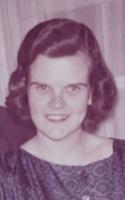There’s a story about Henry Aaron breaking into Major League Baseball that surely resonates with any Red Sox fan. The Milwaukee Braves were playing in spring training against the Boston Red Sox in Sarasota, Florida, on March 14, 1954, the story goes, when a 20-year-old kid called up to replace injured left-fielder Bobby Thompson mashed a 450-foot home run. The sound of the baseball cracking off Aaron’s bat is said to have caught the notice of Ted Williams, who didn’t see the hit.
According to one telling, the greatest hitter who ever lived asked people around him, of a man who it could be reasonably argued would go on to earn that distinction, “Who the hell is that?” In another version of the story, Williams tells sportswriters nearby to note the young player’s name as one they would hear again.
Plenty of words have been written about both men, Aaron and Williams, in the years since then — enough to both create legends and pierce them. As author Matt Tavares later documented, the Braves did put Aaron in the lineup against the Red Sox that March, and he did, in fact, hit a home run. But the game was played four days earlier. Thompson had not yet broken his ankle. And Williams was nowhere nearby. Having fractured his collarbone on March 1, he was recuperating in Massachusetts.
Though memories of that at-bat may be gauzy, one can still appreciate the poetry of the team that would long be haunted by Babe Ruth and his 714 career home runs witnessing the premiere of a kid who, 20 years later, almost to the day, would overtake the record. Though he ended up with 755 of them, Aaron’s 715th home run, sent over the outfield wall in Atlanta-Fulton County Stadium on April 8, 1974, would become the signal accomplishment of his career. Footage of the shot plays on a loop in Cooperstown.
It wasn’t the whole story of Henry “Hank” Aaron, though. Any legend, especially in baseball, has a way of being worn down until it’s neat and tidy. For a Black kid from Mobile, Alabama, growing up and playing in the Jim Crow South was anything but neat and tidy.
Prior to arriving in Milwaukee, Aaron was one of the first Black players in the South Atlantic League, playing in segregated ballparks in segregated cites, and targeted by rocks and death threats hurled by racists. When the Braves left Milwaukee for Atlanta, Aaron was reluctant to follow: “I have lived in the South and I don’t want to live there again,” he said at the time, according to the Atlanta Journal-Constitution. “We can go anywhere in Milwaukee. I don’t know what would happen in Atlanta.”
Aaron, who died on Friday, ended up becoming a fixture in the city. Civil rights activist and former Atlanta mayor Andrew Young likened him to Joe Louis and Jackie Robinson as someone who “opened up a lot of doors in a lot of people’s minds.”
In an interview with the Atlanta newspaper, Young recalled the parade thrown for Atlanta’s new baseball team when the Braves moved to town in 1966. He purposefully stood behind “a bunch of folks in country overalls” to overhear the white reaction to the Black players.
As Aaron rode past on a convertible, Young said one the men in front of him nudged another and said, “Now, if we’re gonna be a big-league city, that fella’s gonna have to be able to live anywhere he wants to live in this town.” Indeed, Aaron would go on to own car dealerships in the city and become one of its most beloved celebrities.
Not that it would come easy, especially as he approached the record set by Ruth, which had stood for nearly two generations. As the Atlanta newspaper reported, Aaron in later years kept a box in his attic of the worst hate mail he received — compartmentalized and put away, but never far from reach or memory. Former teammate Dusty Baker said he saw a lot of those letters. “It was terrible,” he said, “but he was still carrying himself with honor and dignity. … He treated everybody good, regardless.”
After his retirement in 1976 — he played his final two seasons back in Milwaukee — Aaron would advocate for civil rights and better treatment of minority players in Major League Baseball. They were the things for which he wanted to be remembered, too, more so than a record he broke and held for 33 years, until he was surpassed by Barry Bonds in 2007.
As Aaron himself told an interviewer, “When I think about my life and what I went though, I would like people to think more in terms of saying, ‘Well, you know, he was more than just a baseball player.’”
Such a modest wish by a humble man who changed baseball and helped change a country.












